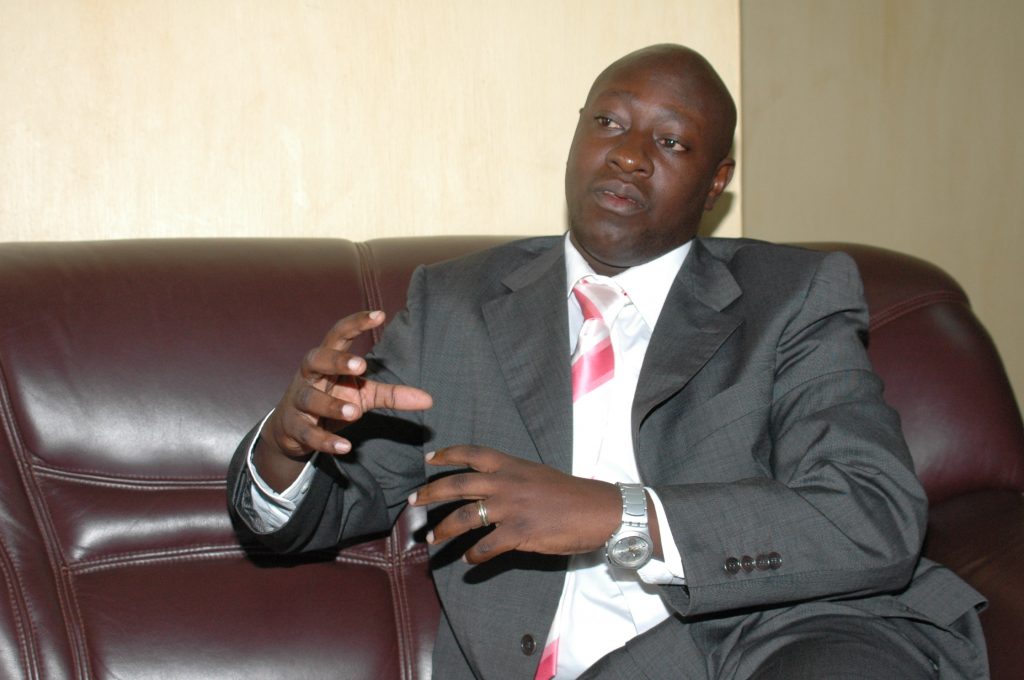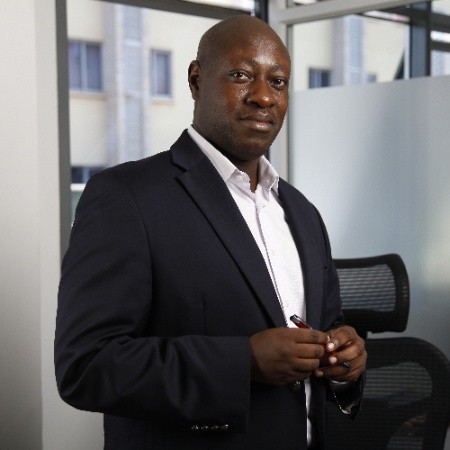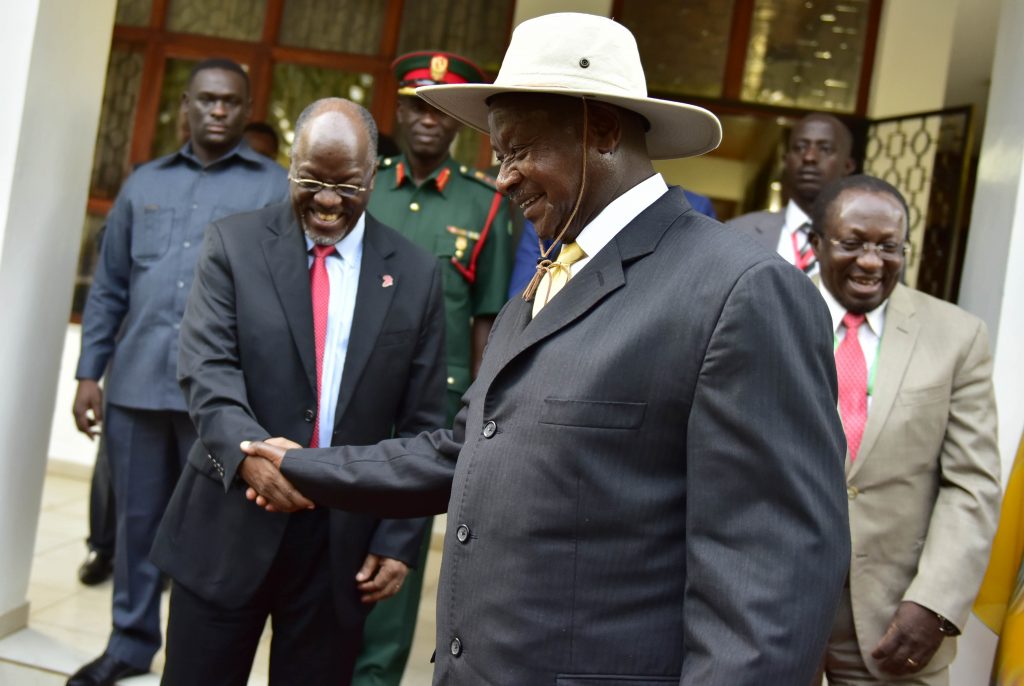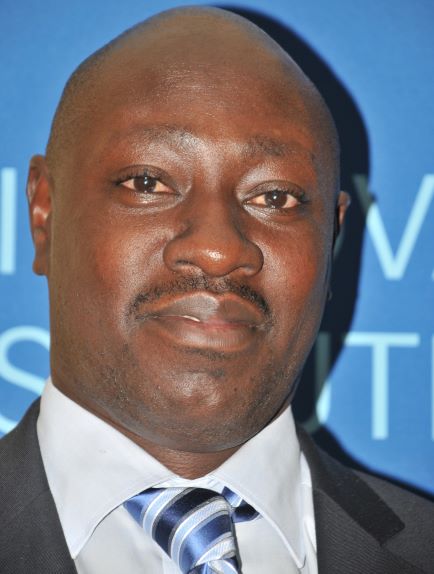Today, he is Chairman, Afrisafe Risk Consultants and is about to make a major announcement in the pensions industry. Ejalu who between October 2010 and June 2014 served on the board of the Insurance Regulatory Authority, sat down with CEO East Africa’s Muhereza Kyamutetera to discuss a number of issues in the industry.
When I last interviewed you in July 2012, Marsh, had just acquired the insurance brokerage arm of Alexander Forbes- which you previously owned. You were so upbeat about the creation of Marsh Uganda Ltd- but a few years down the road, in 2017, you quit Marsh and formed Afrisafe Risk Consultants- a competitor to Marsh. Since your departure, Marsh has since slid from the 2nd position to the 4th position in 2018 and experienced a 51% decline in premiums. In the meantime, Afrisafe which started off in the 8th position in 2017, in 2018 jumped 3 places, from the 8th position to the 5th position, thanks to an 82.16% rise in commission earnings from UGX1.7 billion to UGX3.1 billion, outmaneuvering several brokerage houses that have been in the business for some time.
In the first place, what led you away from Marsh?
To put your question into context, you need to look at the trends that have been happening in the insurance and pensions sectors; which trends, we are responding and reacting to.
The first trend is a very positive one. When I entered in the insurance business in 1997, at the time we valued so much the foreign players because they had more expertise and knowledge. If you had expatriates in your group, you were more trusted; but we are now seeing a situation where the local industry has matured. There is a considerable pool of sufficiently skilled Ugandans in the insurance business and more importantly, clients have also started appreciating using local experts. That has subsequently diminished the need of having international partners these days as opposed to those days when we started business.

Straight from the Brunel University London where he graduated with a Bachelor of Science in Economics and Business Finance, Kwame Ejalu in February 1997 started Liberty Insurance Brokers Ltd as an Executive Director. In April 2003, Alexander Forbes the South African provider of financial and risk services acquired 51% of the business and renamed it Alexander Forbes Uganda. Ejalu then became Managing Director, till June 2012 when Marsh, the world’s largest insurance brokerage and risk management services company acquired the insurance brokerage arm of the business. Ejalu who kept some stake in the new Marsh Uganda, became Chairman of the company. He also retained a stake in the remaining pensions management arm of Alexander Forbes, where he also became Chairman.
He however, in July 2017, parted ways with Marsh and formed another brokerage services company known as Afrisafe Risk Consultants, where he is now Chairman.
The second dynamic is on the side of the foreign companies that enter or entered into partnerships with local companies. The successful ones do what we call alignment of incentives and operating principals as opposed to standardization. Standardising is increasingly becoming difficult. New York cannot be the same as Uganda. Anybody who tries to make two operations identical will struggle.
For example, I have seen a foreign insurance company in this market that requested the local office not to insure property under USD10 million! In Uganda most of the properties are below USD10 million, yet in New York there are lots of USD10 million dollar properties. What these guys did in effect was killing and closing their business. This is a typical situation where somebody tried to standardize as opposed to aligning.
The failure to understand how to apply and differentiate alignment and standardisation is what is setting this trend. That is why you see for example, ten years ago the leading insurance company was an American company, but now the leading 2 are regional companies. It is not a surprise that there are more regional companies in the top 10 because they are more in touch with the local aspects.
Likewise in dealings with my former partners, in good faith they had a direction that they felt that they should go with and I too in good faith, felt differently and I therefore sold my interest in Marsh Uganda and started Afrisafe Risk Consultants.
Relatedly, Alexander Forbes, recently announced that they were pulling out of Alexander Forbes Financial Services Uganda Ltd – the pensions administration arm that was not bought by Marsh. Why and why now?
Thepensions space where Alexander Forbes playsas a pension fund administratoris verylimited in size. There is not more than 100 employers in Uganda who are giving voluntary or additional pensions to their staff beyond the statutory NSSF contributions. If they are more than 100, they might be marginally more, not significantly more. The reason for that of course is that NSSF takes 15% of savings- 10% by employers and 5% employees and there is almost no room for an employer to save more because the businesses have other issues to face, while on the side of the employee there are other needs like school fees and all the other personal and social obligations.

Am not going to enter into the demerits and merits of pensions liberalisation, but all I can say is that when the decision was taken by parliament, not to open up the pensions space, some of the international players such as Alexander Forbes found the attractiveness of Uganda reducing.
But over and above that, Alexander Forbes at a group level, has been looking inwardly for reasons they are best-placed to explain. For example in 2012 they sold and exited the Tanzanian market, they completed and exited Kenya in 2017 and Uganda’s exit is just beginning.
Any idea on when Alexander Forbes exit from Uganda will be complete?
We hope it will be complete in about 30 days from now. There will be a little bit of the transitioning period, but in all this process the client comes first because nobody is interested leaving a bad taste with our clients.
When Alexander Forbes pulls out, what will happen to your investment as Kwame Ejalu?
A company that I control owns 49% in Alexander Forbes Uganda and they own 51%- we are a significant minority shareholder. We will soon be announcing the next brand that will be in charge of this business as a growing concern, with a focus on continuing to lead the market as we have been.
What market share is occupied by Alexander Forbes Uganda currently?
In terms of private pension funds management, we had over 40% of the market and about UGX380 billion in funds under administration.
Apparently Liberty Holdings, the Standard Bank Group-owned entity that owns Liberty Life Assurance Uganda Ltd and Stanlib Uganda have also announced they are pulling out of Uganda. Is the sector that much under pressure?
Am not particularly sure about Liberty Holdings pulling out of Uganda but if you look at what is happening in the market, there seems to be some movements out of the market by global players. For example, Aon PLC one of the leaders in risk, reinsurance, retirement and health solutions pulled out of several sub-Saharan African countries include Uganda. Their business was sold to the Minet Group. In 2016, AIG Insurance left the Ugandan market, although they have since changed their minds.
The dynamics of the business are really changing- the big international groups quoted on the New York’s stock exchange players are exiting and then all of a sudden, regional and local players are becoming market leaders.

Today the leading two players in life and general insurance- Jubilee and UAP are regional players. Sanlam, the third biggest player- although South African, has a regionalised decision making process. If you look at the top 10 players in life, non-life insurance and even amongst the brokerage companies, you will see a lot of local and regional players. Even then, most of the regional players have local talent as management and board- the owners are mostly strategists.
This market- the top of it, in a short time will largely be led by locals; you just need to look at the trends and you will know.
Regarding Afrisafe Risk Consultants, how is business turning around? What has been the market response?
All we can say is that we have been very lucky- market reception for our solutions has been very good. We were treated like a law firm, whereby, where the key partners go is where the clients go. Afrisafe broke even on the first day of business, and we have our eyes firmly on leading in this market- continuing with the same principles and tools that I used to take Alexander Forbes and Marsh Uganda to the top of the market.
CLICK HERE TO DOWNLOAD the 2018 commission earnings by insurance brokerage companies. AfriSafe Risk Consultants broke ground in the 8th place, but in 2018 jumped 3 places to the 5th place- all in just 2 years of operation. Download
Fortunately in all of those transactions, the staff have remained the same, the technical team has remained the same, so the market can more or less expect the same winning solutions from Afrisafe Risk Consultants.
About a year ago, Afrisafe in partnership with Jubilee Insurance premiered in this market, MotorSure, a product that allows customers to buy motor third party insurance via mobile phones and pay with mobile money. What has been the market uptake of the product?
First of all, let me say that technology (Fintech) is going to redefine insurance, especially in the micro insurance space as it significantly reduces the cost of dealing with a single client which is then reflected in the final cost of the insurance solutions as well.

MotorSure was well received, but we had one major challenge- the market, our customers do not like the idea of parting with their cash before they receive their goods (insurance), so for somebody to pay then sit for an hour waiting for a sticker, didn’t seem to go down well with them. There was a lot of scepticism- a person will start the process and stop along the way.
However we are now changing it to a situation whereby customers have a choice of paying when they receive their insurance stickers- that is the model that we are going to offer. Hopefully it should suit people’s appetite for transacting online- we have to move with what the population is comfortable with.
The insurance industry has frequently expressed concerns over issues of local content especially in the face of the massive investments being made into transport and oil & gas infrastructure, most of the insurance premiums seem to be going to foreign companies at the detriment of the local industry. Relatedly, despite Section 9(3) of the Insurance Act dictating that, “all local risks and persons including imports shall be insured by insurance companies licensed to carryout insurance business in Uganda” a lot of business is still taken by foreign companies. Do you feel there is enough attention being given by the authorities to the growth of the sector?
First of all let me start with the importers; when they pay for goods and services destined for Uganda- they usually pay C.I.F; most don’t know that the “I” stands for insurance- usually marine insurance in transit. Most don’t know that they don’t really have to pay that insurance to a foreign company and that they have a choice of paying that insurance here. They could pay C&F i.e. cost and freight and the insurance is handled locally.
It is an advantage to them because if for example your goods get lost or damaged in transit from China, it is easier to make claims from a local insurance company. But if you have to make claims from a Chinese insurance company, it can be a nightmare. But perhaps for luck of sensitization, the market is bleeding.
The second side is, we have been let down by Uganda Revenue Authority. URA are the people who are everywhere in terms of entry points who could help us police and enforce this law, however, their attitude has been lacking. This could partly be because when calculating their taxes, even the insurance component is included, so it helps them meet their targets. That could be why they are reluctant.
Our argument has been, “if you help us, our businesses grow, and you are able to tax us more”; But they have taken the short term approach. The insurers association has had a meeting with them and the individual insurance companies have had meetings with them, but that is the short term position they have taken- specifically on marine insurance.
On to the other matters of local content, the industry has really done everything they can to ensure that particularly on oil and gas, we have a play. Our capacities are limited at this time, but our argument has been, let us play, so we keep growing our local capacity. There is a local consortium that is being set up by local insurance companies to pool together capacity- but what is missing from that is a pronouncement on brokerage.
Don’t forget that the brokerage commissions is 20%- so when you leave out the brokerage component, you have omitted about 20% of money that can stay in the local economy. This is the one issue that has been played up in the air and that is unfortunate. If we could tie it down as well, it could be better for the industry.


 Uganda Prisons Boss Byabashaija Hails Stanbic For Extending Unmatched Financial Solutions to Officers
Uganda Prisons Boss Byabashaija Hails Stanbic For Extending Unmatched Financial Solutions to Officers